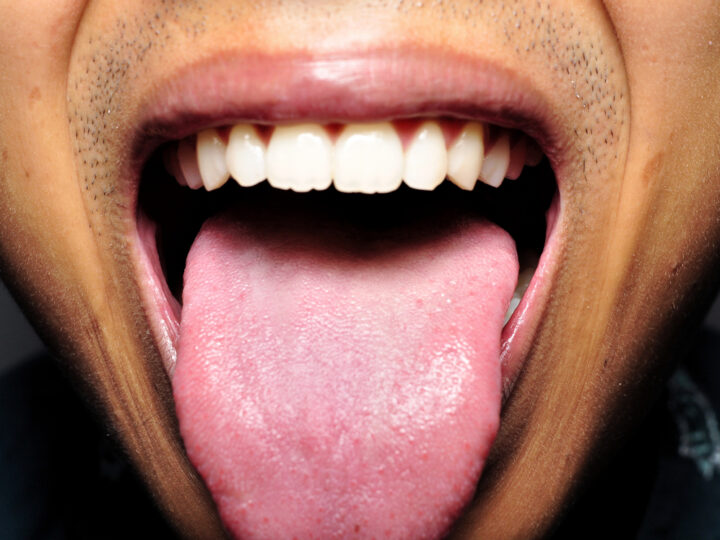EASTERN HERBS VS. PROBIOTICS: PROS, CONS, AND THINGS TO KNOW
Give Your Gut A Boost – But First, Read This

If your stomach is bothering you, go eat some bacteria.
Ok, that might sound crazy, but it’s actually pretty good gut advice. We’re not saying you should go lick a sidewalk. We’re talking about probiotics.
Western Medicine and Probiotics
What Are Probiotics?
According to Western medicine, a body is a microbiome that contains trillions of organisms that work together like an ecosystem. There are lots of little microbes in the ecosystem, including different kinds of bacteria–both good and bad. Probiotics are the good guys.
Probiotics help your body do all sorts of essential functions like boosting your immune system, helping you digest food, create vitamins and nutrients, and more. One of their major functions is boosting the immune system, and taking them alongside any prescribed antibiotics will help reduce any unpleasant side effects. However, if you can reduce antibiotic usage, you net increase your microbiome health.
Most of the probiotics live in your gut, but they also hand out in your skin, lungs, and mouth. At the end of the day, probiotics are around to keep the peace. They’re there to keep your body balanced and healthy. When bad bacteria try to invade, probiotics will fight them off and restore harmony.
At least most of the time. There are situations where a probiotic bacteria will “turn” and become pathogenic. This usually comes when there are severe imbalances. For instance, some fungi have a positive effect on a tree when it is too damp, but when the dampness is a lost cause, the fungus will attack the tree and break it down for nutrients. Our probiotic microbiome can act the same way.
 Should I Take Probiotics?
Should I Take Probiotics?
As long as you do your best to eat a varied and healthy diet, you probably won’t need to take probiotics. However, there are some conditions and illnesses that probiotic can help with, like:
- Diarrhea and IBS
- Ulcerative colitis
- Crohn’s disease
- H. pylori (the cause of ulcers)
- vaginal infections, and
- UTIs
Some people take probiotics to help alleviate digestive problems like gassiness, bloating, and constipation. But we don’t have a lot of studies about these supplements, and the FDA doesn’t monitor them because they’re considered dietary supplements and not drugs. Plus, there are risks. People with low immunity could even get sick from taking probiotics.
We’ll need more studies to be completely sure about the safety of probiotics, but here’s what researchers have learned so far:
- Some combinations of probiotics may help protect you from upper respiratory infections.
- There’s this one kind of probiotics that is especially good for helping people with IBS.
- Probiotics might not work for most people because their digestive tract won’t let the good bacteria take over.
- Taking probiotics and seriously upping your H20 intake could help clear up a case of diarrhea in just 2 days.
The tricky thing about probiotics is that they’re not a one-size-fits-all solution. Some strains of probiotics will be able to help you with your symptom, and some won’t. You need to figure out what strain is right to help you with whatever problem you’re having.
Where Can I Get Probiotics?
You already have probiotics in your body, but if you’re looking to up your levels of good bacteria, you’re in luck. There’s plenty of foods that are probiotics rich, including:
If fermented food and drinks aren’t your thing, that’s ok too. You can buy probiotic supplements in capsule, gummy, powder, and liquid form. Go for maximum number of species, labelling of strains (which tends to mean that the company knows which strains to use), and high concentration. And, make sure to keep it at the right temperature as indicated on the bottle.
TCM and Digestion
 In Western medicine, as long as you eat a healthy, varied diet, your probiotic levels should be good and your digestion should be healthy. The same is pretty much true in Traditional Chinese Medicine (TCM). In TCM, food is medicine, so eating well and nourishing your body is the key to being healthy.
In Western medicine, as long as you eat a healthy, varied diet, your probiotic levels should be good and your digestion should be healthy. The same is pretty much true in Traditional Chinese Medicine (TCM). In TCM, food is medicine, so eating well and nourishing your body is the key to being healthy.
In fact, digestion in TCM is closely related to two of the most important organs–the Spleen and the Stomach. These two organs take the nutrients from food and turn them into blood and Qi which are both essential for a healthy life.
But even though digestion is just as important to TCM practitioners as it is to Western doctors, they prescribe their patients herbs instead of probiotics. So if you’re looking for a bacteria-free way to help with your gut health, here are some options to try. Unsure which solution is the best one for you? Set up a virtual consultation with one of our Eastern medicine experts and they’ll help create a customized plan for you.
Chinese Herbs For Gut Health
Shen qu
Shen Qu is a fermented leven that includes probiotics. It may contain gluten, but is most often made with fermented barley which tends to have fewer allergens than wheat. If you are not sensitive to shen qu, you can add it to warm tea (not boiling water which would kill the bacteria.)
Miso soup
Miso is a paste of fermented beans that range from soy or chickpeas. You can add a spoonful to warm water and drink as soup. The Japanese usually add a small square of tofu and scallions or sea vegetables.Miso is directly probiotic.
Licorice

Licorice | Gān Cǎo
Apparently, licorice root is good for more than just flavoring your Twizzlers. As an antiviral, antibacterial, and antifungal herb, it’s known in both Western medicine and TCM for having lots of health benefits. Studies have shown that it can help with everything from acne and eczema to cavities.
And it’s amazing for digestion, too. In TCM, it’s used to strengthen the Spleen’s Qi and clear out heat toxins that give you heartburn. Studies have shown it helps ease indigestion and acid reflux. And more research is definitely needed, but licorice might even be able to help treat and prevent ulcers.
You can find licorice root in capsules, powders, tinctures, and teas.
Ginger
Ginger is a popular TCM herb and Chinese cooking ingredient. As a warming food, ginger is known in TCM for it’s circulation-boosting properties.
It’s been used around the world as a nausea treatment for centuries, and science backs it up. TCM practitioners often prescribe it to pregnant women suffering from morning sickness. Studies have shown that it’s also helpful for indigestion because it helps move food through our digestive systems faster.
Cloves
Cloves might not be probiotic, but they can still help kill bad bacteria in your body. As an antimicrobial, they kill things like e.coli strains that can cause food poisoning and stops bad bacteria from forming in the first place. And they haven’t done human studies yet, but researchers have found that clove treats ulcers in that same way that anti-ulcer meds do.
In TCM, cloves are used to boost the circulation of Qi throughout the body and break up stagnant energy. It pushes things like our digestive system along, so it’s used to treat problems like nausea and diarrhea while improving digestion.
Shan Zha
Shan Zha is also known as Chinese Hawthorn berry, and it’s been a popular TCM remedy for indigestion for hundreds of years. It’s especially good at breaking up food stagnation that causes indigestion.
In the West, a different species is better known for its heart health benefits, but some research has been done on its digestive powers. It helps push food through the digestive system more quickly and might help protect against ulcers.
No matter what perspective you’re coming from, gut health and digestion matters. So whether probiotics or Chinese herbs are the right solution for you, all that really matters is that you’re taking care of your body.
Newer
4 Secret Signs of Inflammation And How To Fix It
Older
How Long Do Herbs And Herbal Supplements Last? What To Know About Expiration Dates
Comments (0)
Leave a reply
You must be logged in to post a comment.




